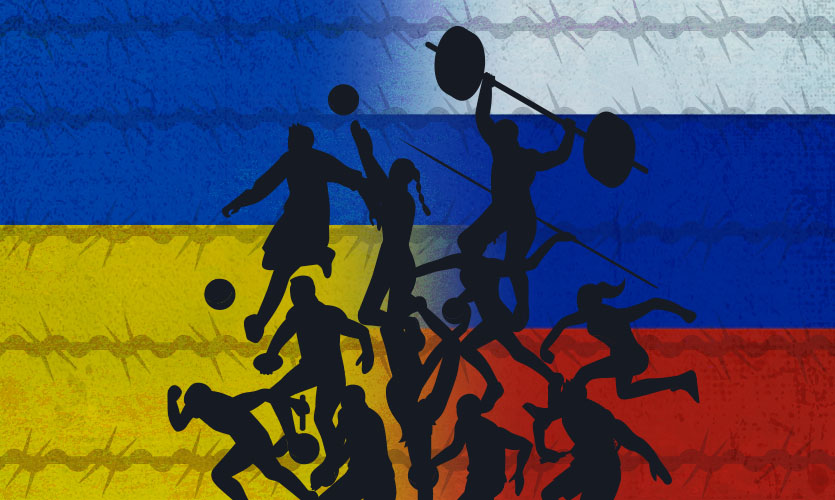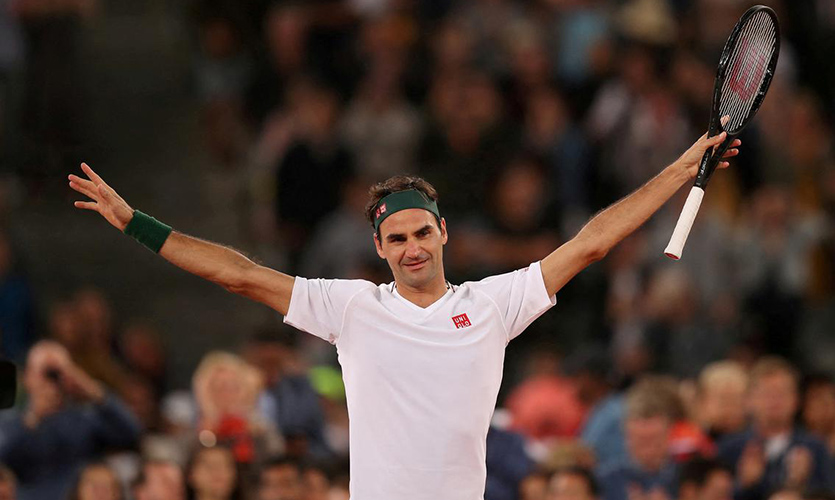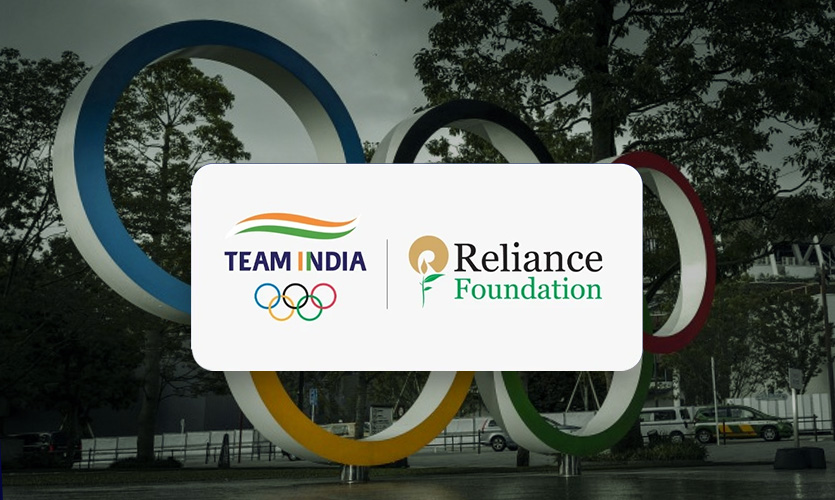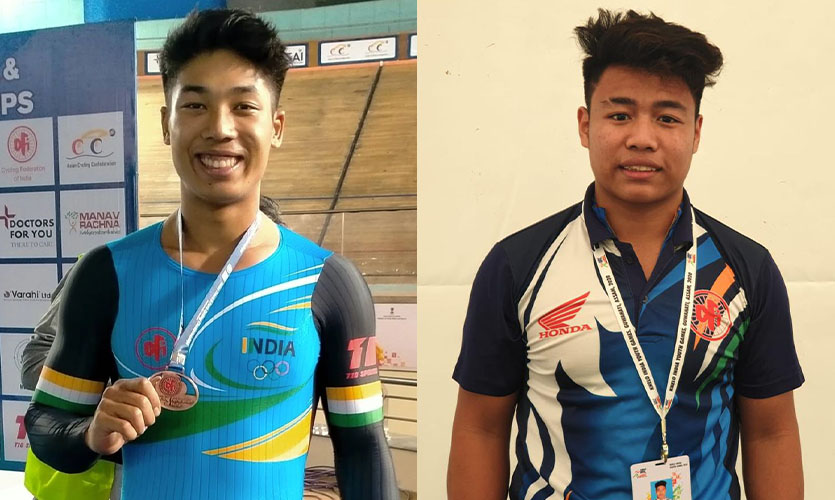Russia’s invasion of Ukraine and its innumerable missile strikes have created ripples across all global sectors, including the world of sports.
Sports institutions and federations have long protected the ‘sacrosanct’ political neutrality in games, but this time, it is different; call it being opportunistic or harried.
Nations across the globe graced the 2022 Beijing Olympics with their parades and participated with full zest, from February 4 to 20. Four days later, on February 24, 2022, thousands of Russian soldiers marched down to Ukraine and marked the beginning of the continuing war, leaving diplomacy in international politics and sports in shambles. The Kremlin earned the wrath of all nations standing with Ukraine, and subsequently their athletes who opposed competing against Russian players, with this unabashed violation of the Olympic truce.
“The Olympic Movement is facing a dilemma with the war currently raging in Ukraine,” admitted Thomas Bach, president of the International Olympic Committee (IOC), on February 28. In a shocking move, as part of the most hefty sanction ever imposed, the IOC recommended the exclusion of the Russian and Belarusian athletes, after requesting the cancellation of all sports events held in Russia. FIFA and UEFA soon followed suit.
Let’s go back a few years to when Russia was still waging wars but the IOC had something different to say.
A year after the International Olympic Committee (IOC) selected Sochi to host the 2014 Winter Olympic Games, Russia invaded Georgia. On the day of the closing ceremony, Russia invaded Crimea, which it then annexed. FIFA, the governing body of football, opted to host the 2018 men’s World Cup in Russia despite its continued occupation of the region.
The IOC appears to have done right by Ukrainian athletes today, however, given its flawed history of ‘no place for politics in sports’ stance, it initially seemed like barking up the wrong tree.
Walking the tightrope with the persecution of Uyghur Muslims and other ethnic minorities on one side, and the sponsors on the other that supported the games in China, sandwiched the athletes, broadcasters and even the IOC in an ethical dilemma. Although Thomas Bach held his ground of political neutrality and let the games continue as is.
So, the question arises, how did the IOC have a change of heart? Why was it not radio silent like it was during the Winter Games in Beijing?
Ever since the IOC decided to bar Russia and Belarus from participating in events, the blocks of the sports arena came tumbling down like Jenga.
The Champions League final was relocated from St Petersburg to Paris by the UEFA, the organisation that governs football in Europe. Even FIFA, the organisation in charge of world football, shifted its apolitical stance. The federations for ice hockey, rugby, handball, and figure skating too adopted the decision. Moreover, Russia could not host the international volleyball championships last summer.
It was high time that these organisations dropped their holier-than-thou act and made tough choices. Perhaps, now it was easier to piggyback on the global opinion of Russia and go through it unscathed. In such a political climate, being an organisation such as the IOC, ensuring unity of international players without facing the conflicts and remaining apolitical seems rather irresponsible.
Sports has always been a pawn in international politics. Consider how Nazi Germany manipulated the 1936 Berlin Olympics for propaganda purposes or how Palestinian terrorists abducted and killed Israeli athletes in Munich, in 1972. In the 1980s, the Soviet Union and the United States exchanged boycotts, and Chechen militants targeted the 2014 Sochi Games.
To add insult to injury, these nations, especially Russia and China, hide behind the facade of ‘sportswashing’, simply described as using sports as a distraction or cover up for a dubious political reputation.
Ever since it was announced that Qatar would host the 2022 men’s football World Cup, there was controversy about the decision. The nation’s stance on human rights and treatment of migrant workers continue to be questioned.
But fans often turn a blind eye to sportswashing. It gets tough to see beyond the glamour of the famous players, teams, sports and sponsors, and see the countries for what they actually stand for. They very syly take advantage of these emotions to improve their public image and popularity.
In a recent development, the flags of Russia and Belarus were banned from the Australian Open. The ‘political’ nature of sports has now seeped through the games and personally affected athletes.
Russian and Belarusian players were banned from Wimbledon last year, but were allowed to compete as individual athletes without national affiliation at the ongoing Australian Open. Noteworthy, Ukraine’s number two Marta Kostyuk refused to shake hands with tour rivals from Russia and Belarus who she feels have not done enough to speak out against the invasion.
Since the beginning of the war, Ukraine has been at a disadvantage, considering that the athletes could not even train properly as compared to their counterparts. Looking at the Russian athletes, most of whom have no link to the war and just want to play for the spirit of sportsmanship, it is regrettable to see them pay the price for something they had nothing to do with.
Consequently, the sports industry is bound to take a hit. “Financing sports events is becoming more and more expensive, so we can’t organise them everywhere. If we reduce the number of host countries, we will end up with the G7 members sharing the organisation of competitions,” says Vincent Chaudel, founder of the Observatory of Sport Business. If international relations turn sour at this rate, there will be a steep decline in the number of players, host nations and most importantly financiers and advertisers.
The IOC cannot undo the damage by banning Russian players for Ukraine’s occupation, but it’s definitely a start to international organisations finally taking a political stance and holding culprits accountable.










